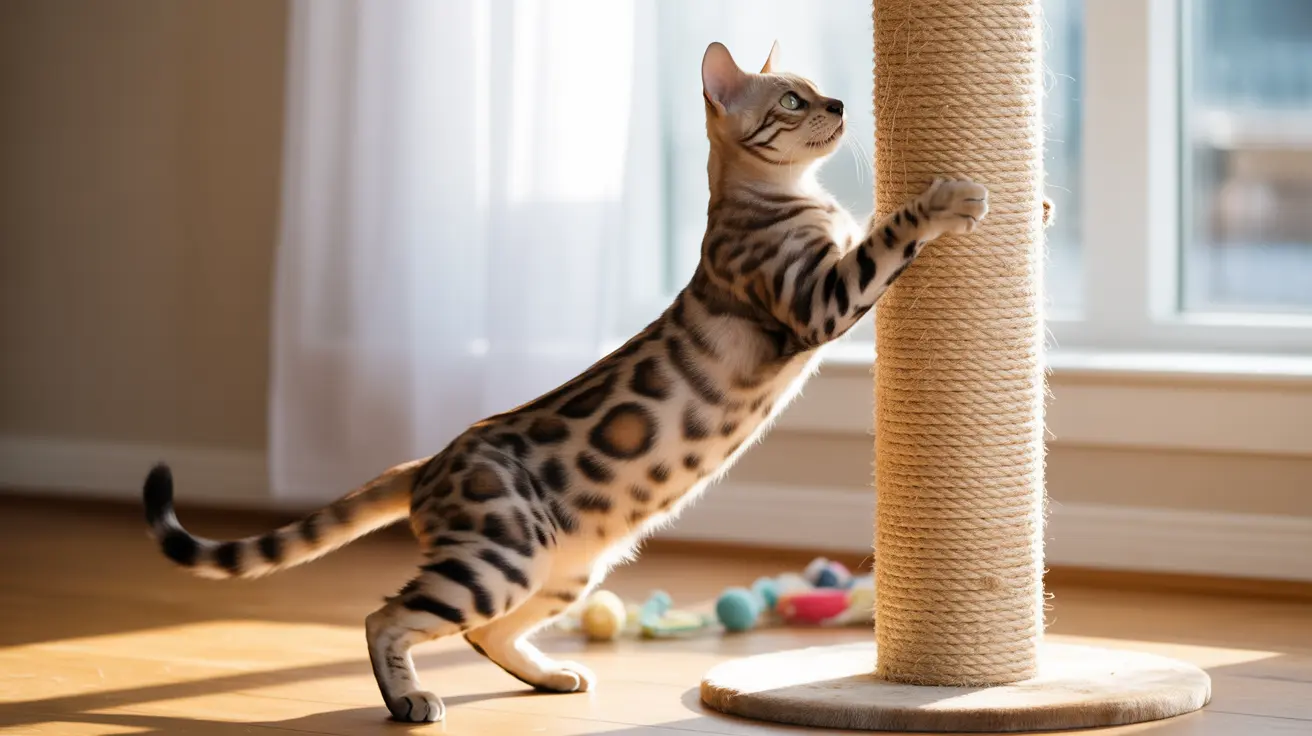Understanding Savannah Cat Temperament
Savannah cats possess a fascinating blend of wild and domestic traits that shape their personality. Their high intelligence and strong bond with human family members often result in dog-like behaviors, including following their owners around and even learning commands.
Despite their partial wild ancestry, properly socialized Savannah cats typically show no more aggressive tendencies than regular domestic cats. However, their high energy levels and need for stimulation require careful consideration.
Physical Characteristics and Capabilities
These exotic felines are notably larger than typical house cats, with some reaching up to 25 pounds and standing 40 cm at the shoulder. Their athletic abilities are impressive – they can jump up to 8 feet high and run at speeds of about 35 mph.
While these physical attributes don't make them dangerous per se, they do mean that Savannah cats require proper space and environmental enrichment to channel their energy positively.
Safety Considerations for Families
When properly socialized and cared for, Savannah cats can be safe and loving family pets. However, there are several important safety considerations to keep in mind:
- Early socialization is crucial for developing a well-adjusted adult cat
- Supervision is necessary around small children and pets
- Secure living spaces are essential to prevent escape
- Regular veterinary care helps maintain their health and temperament
Housing and Environmental Requirements
Creating a safe and enriching environment is crucial for preventing any potentially destructive or dangerous behavior. Savannah cats need:
- Tall climbing structures and perches
- Interactive toys and puzzle feeders
- Secure outdoor enclosures (if possible)
- Plenty of space for exercise and play
Legal Considerations and Ownership
Before considering a Savannah cat, it's essential to understand that their ownership is regulated in many areas. Some countries, like Australia, have completely banned them, while others require special permits or restrict ownership based on the cat's generation number.
Frequently Asked Questions
Are Savannah cats dangerous or aggressive to humans and other pets?
Savannah cats are not inherently dangerous to humans. When properly socialized, they're typically affectionate and gentle with family members. However, they may need careful introduction to other pets due to their strong hunting instincts.
What safety precautions should I take when owning a Savannah cat?
Essential safety precautions include securing your home against escape, providing appropriate climbing structures, supervising interactions with children and small pets, and ensuring regular veterinary care and proper nutrition.
Is it legal to own a Savannah cat in my country, such as Norway or Australia?
Ownership regulations vary significantly by location. Australia has banned Savannah cats entirely, while other countries may have specific restrictions based on the cat's generation. Always check local laws before considering ownership.
How much exercise and mental stimulation does a Savannah cat need to avoid destructive behavior?
Savannah cats require several hours of active play and mental stimulation daily. This should include interactive play sessions, puzzle toys, climbing opportunities, and supervised outdoor time in secure areas.
Can Savannah cats live safely indoors, or do they need outdoor access to be happy?
Savannah cats can thrive as indoor-only pets if provided with sufficient space, enrichment, and exercise opportunities. However, many benefit from secured outdoor enclosures or supervised leash walks.
Understanding and respecting these magnificent cats' unique needs is key to ensuring they remain safe, happy, and well-adjusted companions. While they may require more dedication than typical house cats, Savannah cats can make wonderful pets for the right owners who are prepared to meet their specific requirements.






